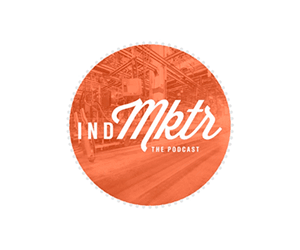Is B2B customer onboarding part of your integrated marketing strategy? Creating a successful customer experience and establishing positive customer relationships is essential for the success of any business, including industrial and manufacturing operations. Finding customers and nurturing those relationships is key to selling your products, solutions or services.
While many businesses only focus on the customer relationship during a purchase, it is the customer onboarding process where customer relationships are actually developed. This is a period when your potential leads get familiar with the product or service, create their impressions about your company, and become your customers. If not done correctly, you can lose the opportunity to develop positive relationships with potential leads and turn them into loyal customers. Ensuring the onboarding process is frictionless and being mindful of all its risks can help you maintain successful customer relationships.
5 Risks to Consider for B2B Customer Onboarding
The B2B customer onboarding stage is a critical step in the customer journey. It can make all the difference between gaining a loyal customer or your potential lead becoming a part of your churn statistic. By mitigating these risks that might arise during the onboarding process, you can significantly increase your chances of retaining your customers and creating a loyal base.
1. Customer Information Overload
Risk: B2B customer onboarding is a delicate process of finding the perfect balance between gaining enough information about your potential customers while familiarizing them with your product and minimizing potential friction. Many businesses try to use this opportunity to provide their customers with as much information about their products or services as possible to push them from the consideration phase to action. But this can be overwhelming for the customer. Yes, they want to get the necessary information about the product that will deliver the most value. But overloading them with information can leave them struggling to remember key details about the product.
Solution: As a general rule of thumb, you should only provide the information needed to best utilize the product based on the customer’s requirements. In most cases, not every B2B customer will need to use the product the same way. Educating them about the product features they might not even use will overwhelm them and maybe even cause them to turn to your competitors. By personalizing the onboarding process, you can ensure your customers are focused on the information they need to make the best use of their new product or service. Any additional information you believe will be pertinent can be explained to them after the sale, leaving them enough time to familiarize themselves with all the features without taking their focus from the most important ones.
2. False Customers With Malicious Intent
Risk: Unfortunately, there are malicious actors everywhere who might be trying to exploit your business for various criminal activities such as money laundering, human trafficking, or even terrorism financing. If you are not vigilant about who you are onboarding, you could be at risk of being non-compliant with regulations and laws that try to prevent those criminal activities. While financial institutions like banks, credit unions, or Fintech companies face higher risk as they have access to more funds, that doesn’t mean the industrial sector is safe. The truth is that criminals are not picky. Financial businesses also have a higher security level, which means criminals will also turn to any business available to conduct their malicious actions.
Solution: The B2B customer onboarding process is essential to complying with regulations as it allows you to confirm that your customers are who they say they are. By utilizing the Know Your Customer (KYC) onboarding process, you can verify their identity and assess their risk factor, determining if they pose a danger to your business. Know Your Customer or Know Your Client is a process of gathering necessary information about your customers that will allow you to confirm their identity and ensure they do not put your business in danger. While this process is mandatory in the financial industry, it is becoming more and more represented throughout the business sector, including industrial operations. Not only does KYC help companies stay compliant with the laws and regulations, but it also prevents them from getting unknowingly involved with criminal activities such as fraud, corruption, money laundering, or terrorist financing.
3. Frauds and Scams
Risk: Money laundering, terrorism funding, and similar illegal activities are not the only danger you might experience in your business. Fraudsters and scammers are constantly looking for new ways of tricking people and businesses out of their hard-earned money. From bad bots to account takeovers to identity thefts, there are many ways fraudsters can use your onboarding process to exploit your business and its customers.
Solution: Luckily, you can use your B2B customer onboarding process to prevent fraudsters and scammers from damaging your business. By using bot detection software and fraud prevention tools, you can ensure your potential leads are legitimate and don’t pose a risk to your business. Be vigilant during the onboarding process, keep an eye on any red flags, and ensure you take all the necessary steps to confirm the customer’s identity. The best thing about customer onboarding is that it is performed continuously. The process gives you more opportunities to spot red flags that might indicate fraudulent behavior, such as account takeover or identity theft, even after the customer is onboarded.
4. Slow B2B Customer Onboarding
Risk: In today’s instant-gratification digital consumer environment, even B2B customers expect a swift purchasing and onboarding process. This includes their interaction with your business, from finding the perfect product to completing the onboarding process to ongoing communications with your company. The onboarding process can seem painstaking and slow if you ask customers for too much information that doesn’t seem necessary. As noted above, overwhelming a customer with details about the product might result in the customer deciding that the process is taking too long and abandoning it altogether.
Solution: Slow onboarding is a risk when B2B customer onboarding is all conducted manually. When too many departments are involved in the customer onboarding process, they may only focus on their own department check boxes that they need to complete before customers can be onboarded. You can significantly reduce the time required to perform all these checks and verify customers’ identities by choosing digital customer onboarding instead of a manual process. Digital B2B customer onboarding also allows you to personalize the experience resulting in higher customer satisfaction and loyalty.
5. Lack of Customer Engagement
Risk: B2B customer onboarding is a highly efficient tool for introducing your product to potential leads and transforming them into loyal customers. But, customers will often have questions and may have requirements that aren’t covered during the onboarding process. If your customers cannot reach you instantly and get their answers, there is a high risk of the onboarding process being unsuccessful.
Solution: Customers expect companies they interact with to have instant support channels and to be reachable through different communication methods. As noted above, you can use digital onboarding tools to speed the onboarding process, and these same tools can help you keep your customers engaged through multiple digital channels. It’s also a good idea to follow customer engagement trends, for onboarding engagement ideas, such as chatbots that offer 24×7 customer support and email or text communications to community boards.
Use Your B2B Customer Onboarding to Keep Your Customers Engaged and Grow Your Industrial Business
The industrial market is competitive, where even the smallest element of the business can put you ahead of your competition. This is why B2B customer onboarding is more important than ever. Onboarding is essential in ensuring you stay ahead of your competitors while creating a loyal customer base. By staying vigilant about the risks listed above, you can create a frictionless onboarding experience that increases business growth while providing a positive customer journey.




